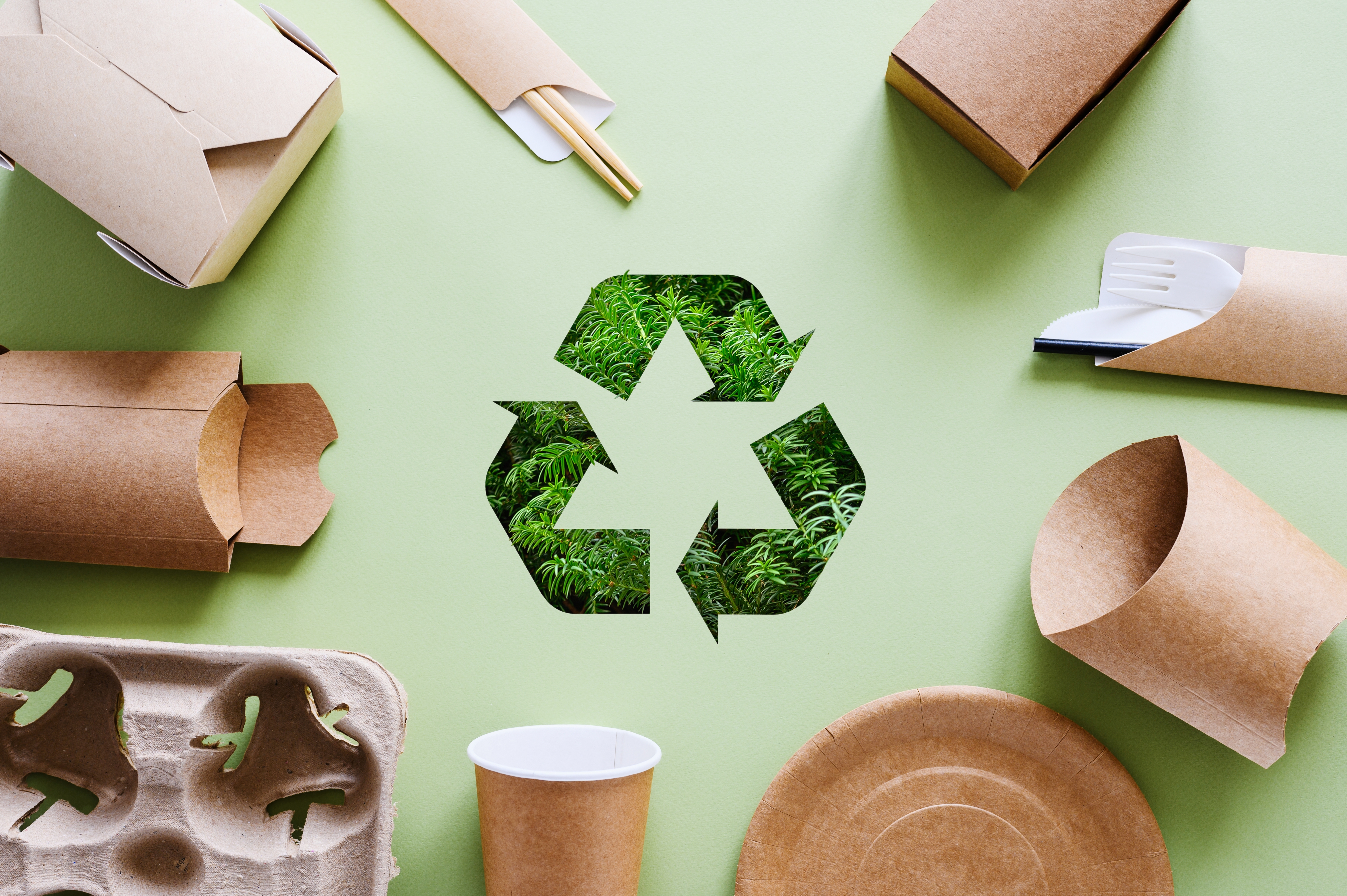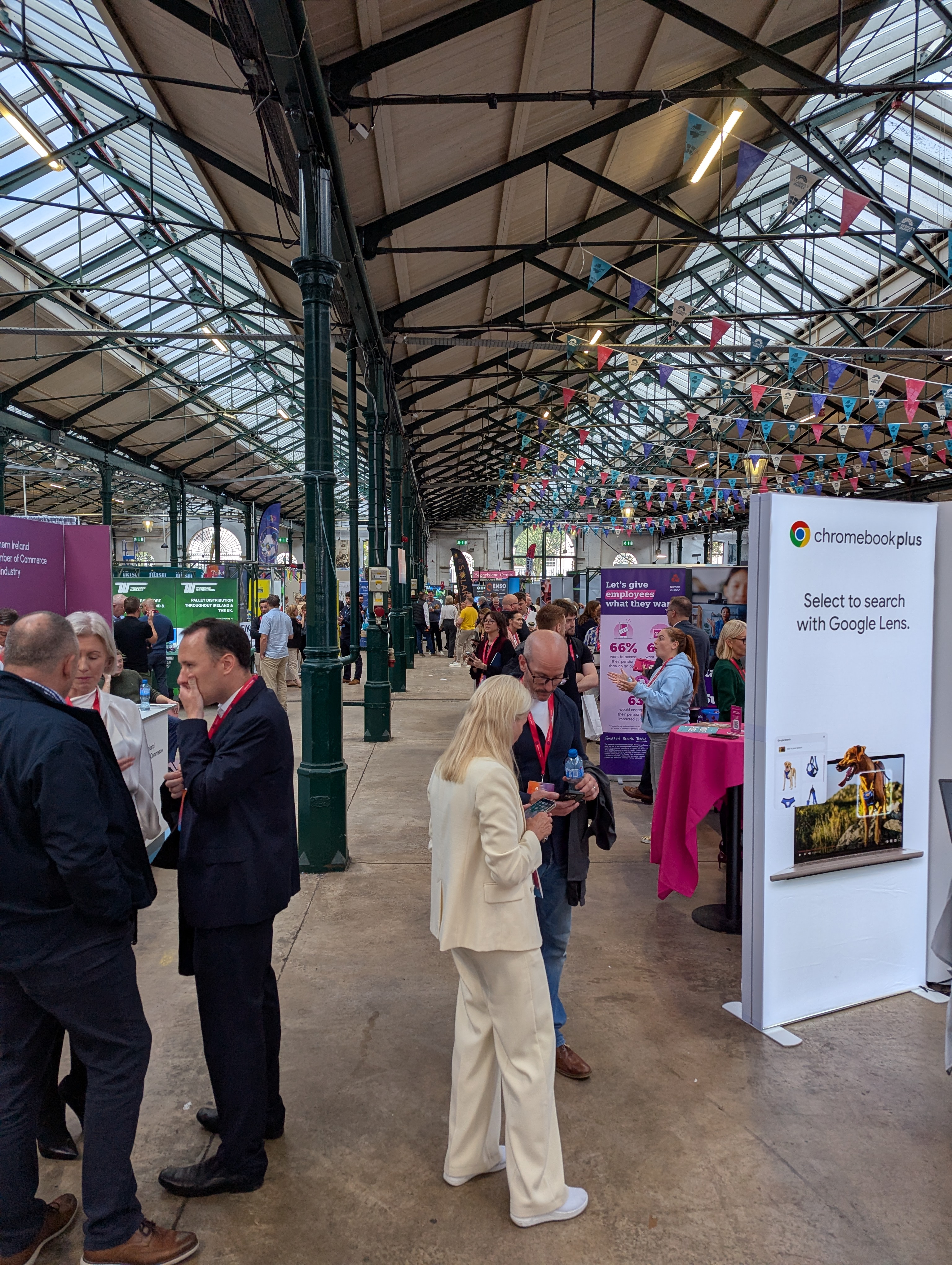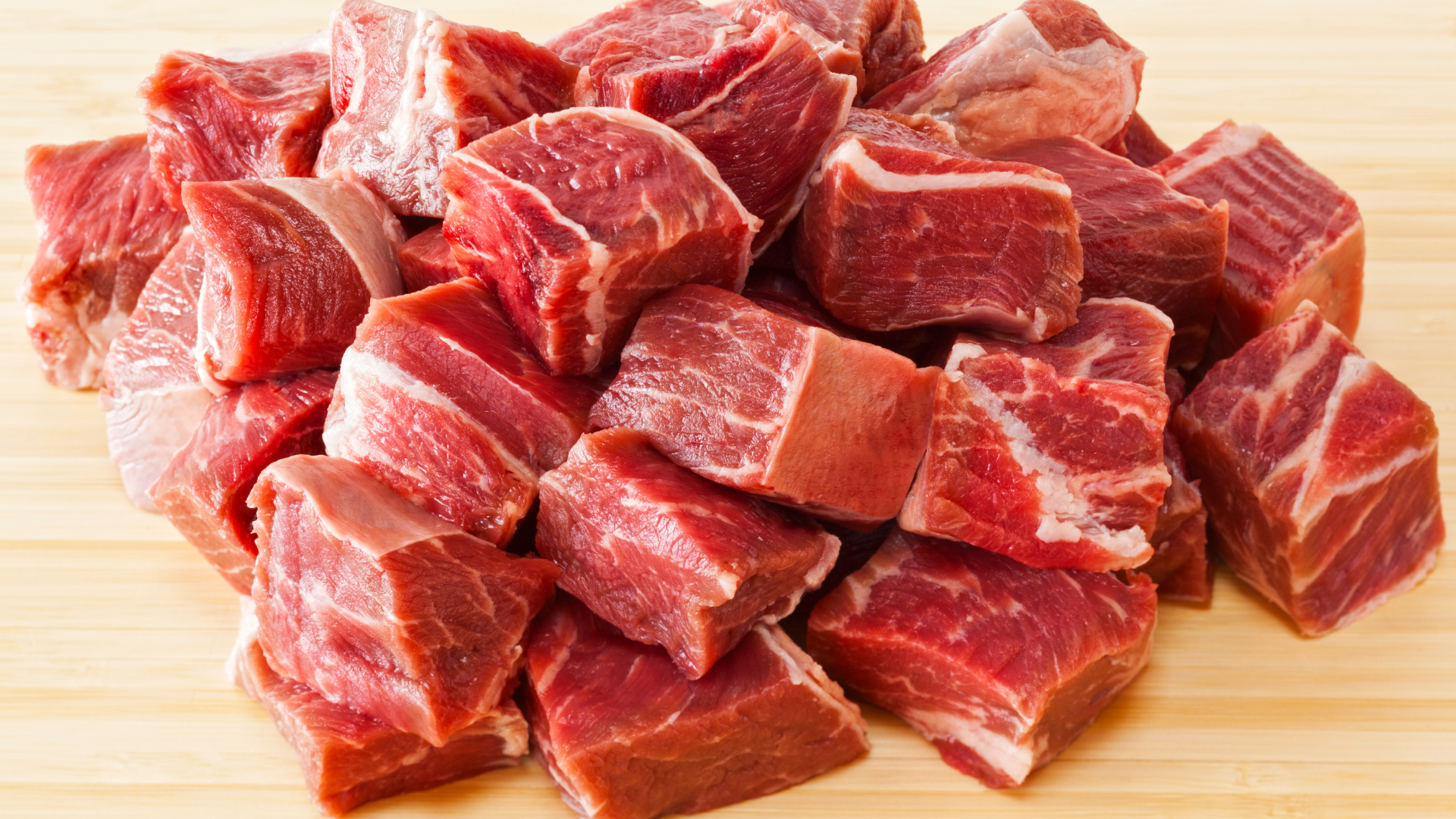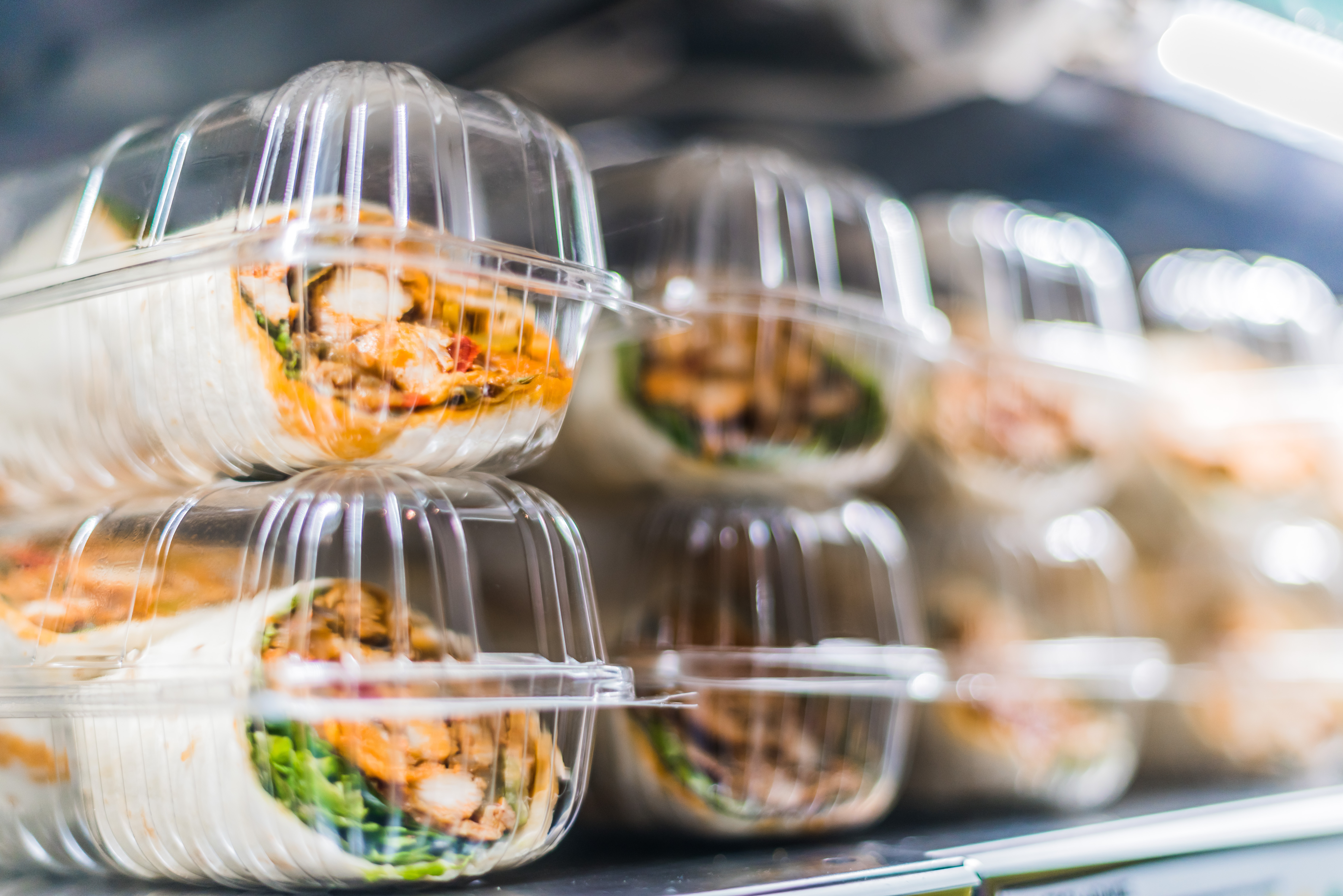In the following article, we look at sustainability through a food industry lens, dissecting what it means to businesses, and analysing the steps brands need to take to improve their sustainability in an industry that contributes significantly to world carbon emissions.
Every industry is talking about it. From textiles to timber, sustainability is a key planning point in boardrooms all around the globe. But there is a sticking point – sustainability represents different things to different sectors. So, with that in mind, what exactly does sustainability mean in the context of agri-food to manufacturers, suppliers, retailers and food service providers?
What is sustainability in the food industry?
In food industry terms, sustainability covers the reduction of food waste and carbon emissions, better farming practices – both agricultural and livestock, packaging, recycling and transportation. It can be incorporated into and optimised for nearly every facet of the food supply chain. But implementing positive sustainability practices can feel like a massive challenge when the food and drink industry is currently viewed as contributing to climate issues rather than backing initiatives to tackle them.
The sustainability stats
It’s estimated that around 25% of the world’s greenhouse gas emissions are attributable to crop production. Plant and animal production use as much as 70% of the world’s freshwater resources - and this is only one part of the supply chain. Food purchasing and procurement are also integral to the wider environmental impact of the food industry.
"Plant and animal production use as much as 70% of the world’s freshwater resources"
Sustainability also covers human and economic health. So, being aware of the exploitative and unsafe working conditions in certain areas of the global agricultural and food production system are also factors here.
The current situation
In short, it would be fair to say that according to the UN current food production practices are not sustainable. But by making a concerted effort to incorporate sustainability into food production, purchasing and distribution, this opinion could change. Plus, there are direct, material benefits for the businesses that do implement sustainable principles.
What are the benefits of sustainable food production?
Let’s consider the benefits of sustainable food production under the UN’s suggested pillars of sustainability: environmental, social, and economic wellbeing.
Environmental benefits
|
Action |
Benefit |
|
More responsible antibiotic usage in food-producing animals |
Less risk to animal and human health |
|
Switch to organic fertilisers |
Reduce carbon emissions, improve air quality and preserve biodiversity |
|
Efficient irrigation |
Minimise water pollution and conserve natural water resources |
|
Responsible water management techniques |
Minimise water pollution |
|
Crop rotation |
Reduce the usage of land-based pollutants such as fertilisers and pesticides |
|
Increased efficiency of livestock supply chain |
Limited future GHG emissions growth |
Together these lead to a more sustainable agriculture and livestock system and are hopefully achievable without a huge financial outlay. .
Social benefits
|
Action |
Benefit |
|
Better working conditions and fairer labour practices |
Economic uplift |
|
Industry training programmes |
Better job opportunities |
|
Support for smaller-scale farmers |
Stronger community-supported supply chain |
Economic benefits
Individual actions such as reducing waste, employing a more efficient logistics system and lowering resource demand all have the same benefits. They reduce costs, enhance profitability in the supply chain and deliver better food security.
There are opportunities to develop and implement new technologies too - building a food supply chain that’s more resilient to challenges such as natural disasters and geopolitical unrest.
Building brand loyalty
Finally, there’s the matter of the consumer – and the power that they wield. A recent Deloitte study underlines just how committed consumers are to making sustainable changes in their lives both at home and with their spending habits - 76% have recycled or composted household waste in the last twelve months, 55% have opted to repair an existing item rather than replace it with something new, and most tellingly one in three have stopped purchasing certain brands due to ethical and sustainability concerns.
"one in three have stopped purchasing certain brands due to ethical and sustainability concerns"
Consumers want the brands they invest in to lead with transparency, so they can make more deliberate sustainability choices. Businesses that do not put sustainability first and revisit consumer expectations through a sustainability lens, rethinking their segmentation and aligning their offering accordingly, could very well find themselves suffering financially.
Here are three easy wins that will resonate with consumers:
1. Reconsider the impact of existing products and services
2. Embed a circular model, so reductions can be achieved in resource usage, energy consumption and waste generation
3. Invest in sustainable NPD that meets consumer demand
Sustainable food production & ethics
Both consumers, employees and investors care about the ethics of the businesses they support, work for and invest in. So, more companies are starting to recognise that good ethics and sustainability go hand in hand. Businesses seizing the opportunities here and acting now will stay ahead of the competition, while also maintaining that all important market share.
By implementing sustainable food supply chain management, businesses can heighten consumer and employee engagement while knowing that their business isn’t negatively impacting the planet. This sustainable farm-to-fork approach gives an ethical business boost, enhancing brand reputation, introducing new revenue streams and ensuring business continuity.
How can food procurement be more sustainable?
With so many factors playing into what constitutes a sustainable food supply chain, there’s a great deal of data that needs to be processed by businesses reaching for greater sustainability in their food procurement.
Take these three steps to make sure your food procurement processes are more sustainable:
1. Gauge consumer demand through accurate forecasting to reduce food
2. Gauge consumer demand through accurate forecasting to reduce food waste
3. Apply sustainability and environmental impact audits to encourage supplier adoption
Keeping sustainability front and centre in procurement decisions has a knock-on effect. Using digital supply chain technologies, businesses can streamline their livestock procurement process, managing yields and forecast future stock demand to reduce waste.
Businesses remaining aligned with in-house policies and procedures should also ensure that working relationships are mutually profitable and beneficial.
Sustainable food production methods
So far, we’ve provided a broad outline of what sustainable food production is - but now it’s time to delve into this in greater detail. Here are some of the primary points to consider.
1. Protecting natural resources
2. Sustainable farming, harvesting & procurement
3. Packing production & consumption
4. Waste management
5. Monitoring factory & supplier energy consumption
Protecting natural resources
In the context of agri-food sustainability, this is using appropriate fertilisers with integrated pest management to improve yields, protect soil, encourage biodiversity and prevent water pollution.
Natural systems are often intertwined, so each intervention can have many benefits. Eg.
|
Intervention |
Benefit |
|
Soil erosion prevention |
Soil fertility |
Sustainable farming, harvesting and procurement
Livestock farming and crop harvesting are both key to sustainable food production – and are areas where industry can make a significant difference. This can range from choosing crop varieties for better yields to implementing sustainable fishing practices. Governments are increasingly turning to legislation to promote sustainability in this area, but effective regulations and enforcement are not present everywhere.
Packaging production and consumption
The entire packaging supply chain contributes to the net sustainability of a final product. From raw materials to manufacturing, use and disposal, data must be gathered and analysed. It can be a balancing act. Certain packaging can appeal to consumers, contributing to sales, but resources still need to be used wisely to keep waste and pollution under control. That means considering packaging specifications and metrics such as recyclability. Once items are bought and consumed, sustainable packaging can be recycled so it has even more of a positive impact.
Waste management
Waste management and the need to make it more sustainable remains a recurring theme in the agri-food supply chain.
Consider these problems and their solutions and see if you can apply them to your sustainability practices.
|
Problem |
Sustainable solution |
|
Poor wastewater management introduces the risk of water pollution |
Practise water recycling |
|
Food waste disposed of in landfill produces greenhouse gases |
Composting and other sustainable processing solutions |
Monitoring factory & supplier energy consumption
The agri-food supply chain – from raising crops and transporting livestock to delivering end products to supermarket shelves – obviously requires energy. So, energy conservation, and conserving what you can as a business from non-renewable and renewable resources matters, is a key priority.
The solution lies in scalable, data-driven energy consumption policies across the supply chain, from manufacturers to retailers and service providers.
By addressing all these issues, we can work towards creating a more equitable and responsible system that benefits both people and the planet.
Effective CSR with Foods Connected
Sustainability is a crucial element in any food-related business’ CSR profile. While you can control what happens in your own business, you need the ability to evaluate your supply chain and its sustainability. Ultimately, you will be seen as co-responsible for your supply chain’s positive or negative impacts - not just your in-house practices.
With so many factors to consider when trying to make sustainable choices, Foods Connected simplifies what can seem like a near-impossible task: leveraging massive amounts of data spanning multiple indicators to further your CSR objectives.
Request a demo of the Foods Connected platform today, or contact our team to talk about your CSR and sustainability goals. If you'd like to learn more about how effective food security can help build sustainable, more resilient food systems, watch our webinar on the subject below.
.jpg)
Greer McNally
Greer has over 15 years’ experience writing about trends in the food and retail sectors. She lives in a little village by the sea in Northern Ireland and loves creating content that informs how people think about the food industry. A recent career highlight was interviewing the legend that is Dr Temple Grandin.
Stay up to date
Stay up to date
Browse Posts
- February 2026
- January 2026
- December 2025
- November 2025
- October 2025
- September 2025
- August 2025
- July 2025
- June 2025
- May 2025
- April 2025
- March 2025
- February 2025
- January 2025
- December 2024
- November 2024
- October 2024
- September 2024
- August 2024
- July 2024
- June 2024
- May 2024
- April 2024
- March 2024
- February 2024
- January 2024
- December 2023
- November 2023
- October 2023
- September 2023
- August 2023
- July 2023
- June 2023
- May 2023
- April 2023
- March 2023
- December 2022
- November 2022
- October 2022
- September 2022
- August 2022
- July 2022
- June 2022
- May 2022
- April 2022
- March 2022
- February 2022
- January 2022
- December 2021
/1.%20HubSpot%20Images/WebinarMay23_bg.jpg)


/Blog%20Headers/shutterstock_1927957907%20(1).jpg)
/Blog%20Headers/shutterstock_1845178195%20(2).jpg)
/Blog%20Headers/shutterstock_2133827717%20(1).jpg)
/Blog%20Headers/shutterstock_2473376713.jpg)
/Blog%20Headers/shutterstock_2247276303.jpg)





/1.%20HubSpot%20Images/procurement%20forecasting%20tool%20ipad%2022-1.png)
/Blog%20Headers/Why%20Forward%20Traceability%20Is%20Essential%20for%20Food%20Supply%20Chain%20Transparency%20and%20Compliance.jpg)

/Blog%20Headers/Blog%20Header_Industry%20Voices%20live_Tom.jpg)
/Blog%20Headers/Preparing%20for%20the%20EU%20Deforestation%20Regulation%20(EUDR)everything%20you%20need%20to%20knowjpg.jpg)
/Blog%20Headers/shutterstock_2087508244.jpg)

.png)
-1.png)
/Blog%20Headers/shutterstock_2390798777.jpg)